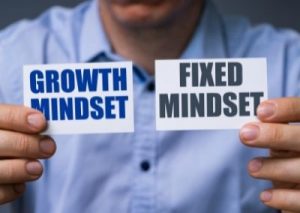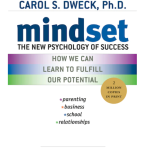
As legal professionals, we are–almost by definition–success-driven people. Often Type A personalities, we were overachieving children who grew into overachieving adults. We’re not used to failure. In fact, we’re so not used to it that maybe we avoid situations where failure might occur. But consider this: What if not failing means you’re not trying hard enough? What if success means you could’ve done better? How can you know your current limits if you don’t push until you hit that (temporary) wall?
Fear of Failure
Fear of failure manifests itself in several different ways. It influences both our personal and professional decision-making.
If you’ve found yourself reluctant to try something new or implement a change, you’re likely battling a fear of failure. Feelings of inadequacy (such as not feeling deserving of a promotion) and even perfectionism are a result of our deep-rooted fear of failing.
Fear of failure is also a key contributor to procrastination. Have you ever found yourself procrastinating in the following situations?
- You can’t get yourself to start on that article you want to publish
- You delay applying to the perfect job until close to the deadline, sometimes even missing it completely
- You put off responding to that potential client for no reason at all
It’s not immediately clear why we would put off these tasks. They’re all important. They’re all potentially rewarding. Digging deep, we may realize that what stops us from acting is an underlying fear that we will fail. Our article may not be any good. We may suck at that job if we get it. That potential client may decide to go with another lawyer. All these are failures in our eyes and failing is not an option. So much so that we’d rather delay dealing with the task, or worse, not do it at all, rather than face the possibility of failure.
Mindset
Our mindset is what shapes how we see and interact with the world. Our mindset influences how we feel, behave and think about challenges. Stephen Covey brought discussions of mindset to the professional world with his book The 7 Habits of Highly Effective People. Covey suggests that a scarcity mindset (the world only has so much to offer) vs. an abundance mindset (the world’s possibilities are limitless) are what differentiates ineffective (unsuccessful?) and effective (successful?) people. Even people with an abundance mindset, however, may avoid seeking rewards when the risk of failure, and subsequent embarrassment, is too great.
While Covey’s ideas are inspirational, Carol Dweck’s work on mindset is transformational. Dweck suggests that people either have a fixed or growth mindset. People with a fixed mindset believe that their talents and abilities are something they are born with. They cannot be changed. Natural talent determines whether they are successful at something. Conversely, with a growth mindset.
people believe that their most basic abilities can be developed through dedication and hard work—brains and talent are just the starting point. This view creates a love of learning and a resilience that is essential for great accomplishment. 1
For Dweck, it’s not the world that contains endless possibilities. It’s you.
At the first sign of failure, people with a fixed mindset quit. Because they believe that they cannot change, fixed mindset people tend to focus on things they already know. They are afraid to try something new for fear of failing or doing it imperfectly. People with a growth mindset, on the other hand, see failure as an integral and necessary part of growth.
Growth Mindset and Productivity
So which mindset do you have, fixed or growth? Faced with a new project you know little about, which one of the approaches do you take?

| Growth Mindset | Fixed Mindset |
| If I challenge myself to do this, I will learn and become better at it. | I can’t learn this quickly, I don’t have the talent for it. |
| There is no failure, only an opportunity to learn and get better. | I won’t try this, then I won’t fail. |
| I will learn as I muddle my way through this and will come away with a new skill. | I don’t want to start this task, I don’t know what I’m doing and that’s an uncomfortable feeling. |
You can see which mindset is most likely to get to the task as soon as possible.
People with growth mindsets believe that they can develop their skills and learn from setbacks. Failure becomes less daunting when you believe that your abilities are not static and you can improve through effort. You start seeing failure in a positive light – as an opportunity to improve, learn alternatives and problem solve. And with that attitude, you are less likely to procrastinate on challenging tasks. And less procrastination means more productivity.
Changing your Mindset
So can you change your mindset? Getting a little meta here – a growth mindset believes you can change, so yes, you can develop a growth mindset. But it does take some intention.
Here are some ways you can start incorporating the growth mindset into your life:

1. Start learning something new, something completely different from what you regularly do. Try something you believe you have no talent for. It could be something as big as learning a new practice area. Or something smaller like learning a new piece of legal tech that seems way too complicated. Or maybe something completely different from your work – cooking or building furniture.
2. Focus on the learning journey, not just the goal. Pay attention to the process of learning. Do some research on how learning works and the different methodologies. What might work for someone else may not work for you.
3. Incorporate “yet.” This is a simple one, and one of my favourites. Think about abilities and skills you do not have as temporary gaps that can be closed. For example – “I don’t know much about health law, yet” or “I don’t know how to build a book of business, yet” Just this simple trick can boost your confidence in tackling the problem.
4. Lean into challenges. This one is harder because it is uncomfortable. Next time you face something new and feel that discomfort in your belly, pay attention to that feeling. It might be a sign that you should lean into the challenge. Take it on. You might find something you can learn to be good at.
Conclusion
Changing your mindset could make you more productive. Recognise that even if you “fail” at those challenging tasks, your failure is not a measure of your worth. Instead, it is an opportunity to improve and learn.
Ever since I’ve embraced the growth mindset, I’ve found that I’m a little less likely to procrastinate on complex tasks. I allow myself to fail and ask for help. I’ve come to peace with admitting that I don’t know everything and I’m not good at some things, yet.

And more importantly, the growth mindset has enriched my life in so many ways. I’m learning an instrument I’ve always wanted to learn, but didn’t think I had the talent for. I’m learning a new language. I started this blog.
Think about all the things you’ve wanted to do but dismissed because you didn’t have the talent. Developing a growth mindset can open a world of opportunities for you.
Resources
I’ve put together some resources for further reading on the growth mindset.
Carol Dweck’s book – Mindset: The New Psychology of Success is a good starting point to learn about growth mindset and how it can help you improve your work, personal life and relationships
Check out this Talk with Google where Carol Dweck discusses growth mindset in the context of the individual and the organization
If you’re interested in other reasons we procrastinate, Why People Procrastinate: The Psychology and Causes of Procrastination. When I find myself procrastinating, I find it helpful to run through these reasons to figure out why I’m putting off the task. Once I pinpoint the reason, I can use the right tools to tackle my procrastination. (Or give in to it guilt-free, if the reason is that the task is not important).
If you found this article useful or learned something from it, please share with your social networks.



0 Comments